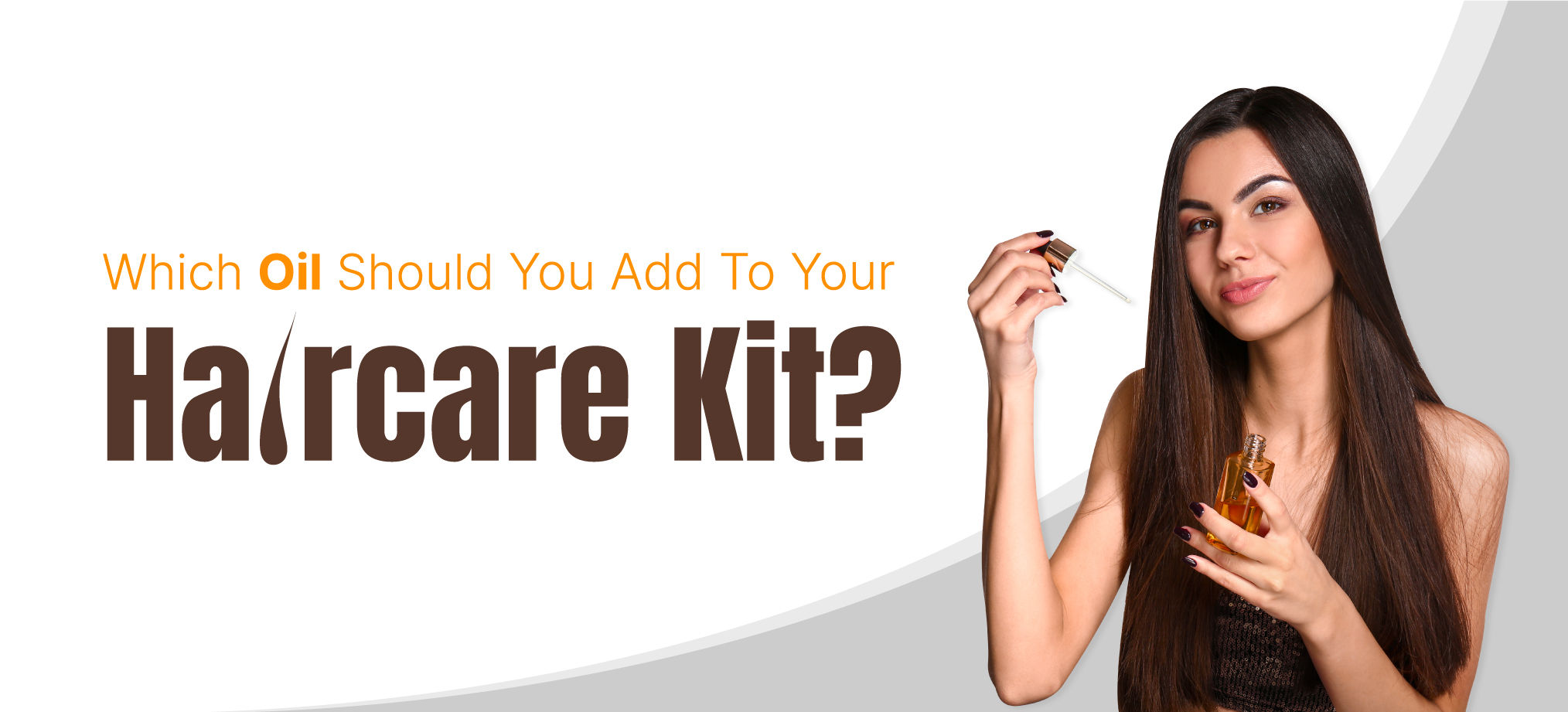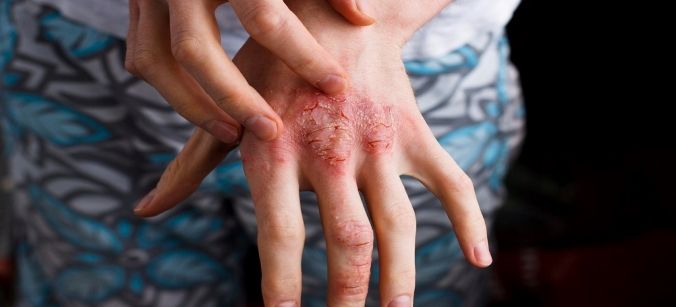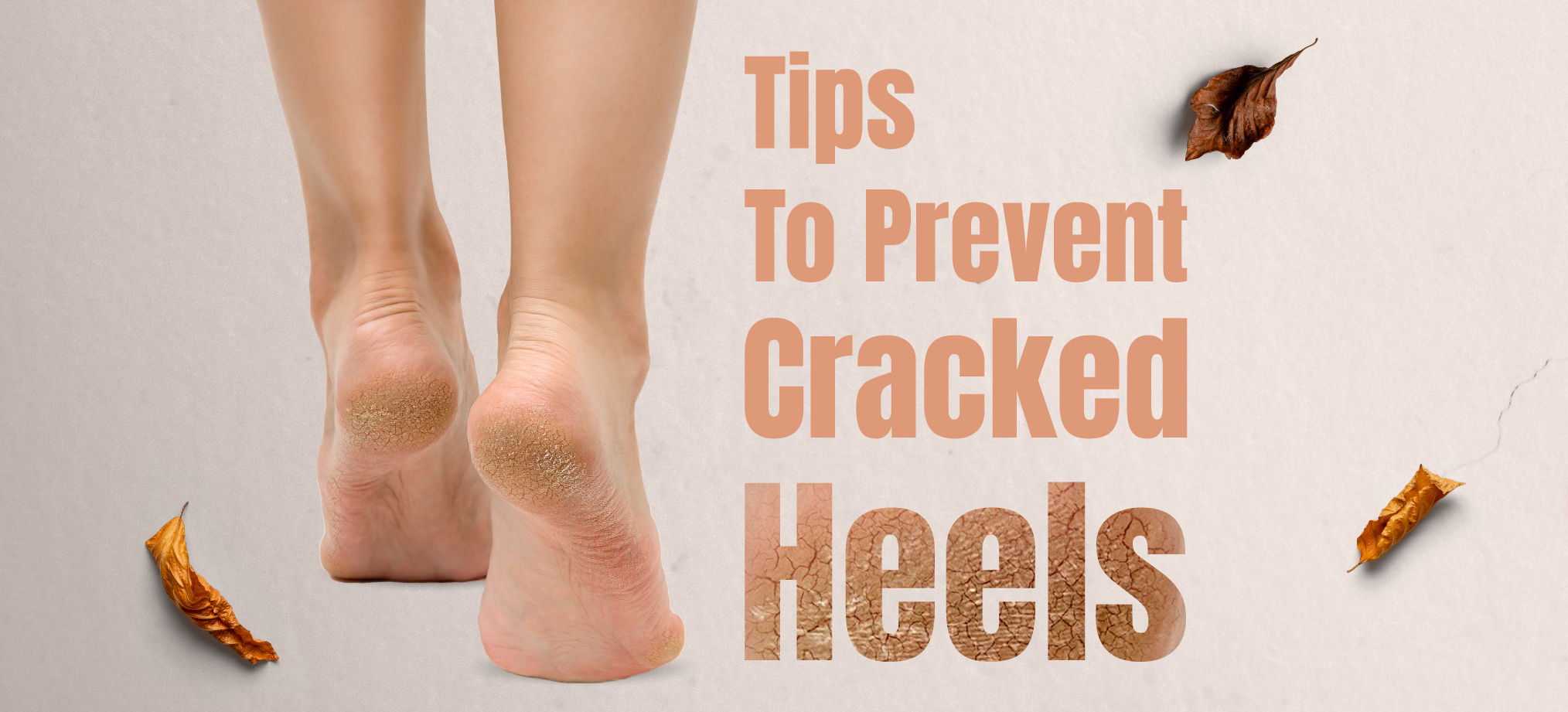Skin Care
Pemphigus Vulgaris: Warning Signs, Symptoms, Causes, Diagnosis, & Treatments
8 min read
By Apollo 24|7, Published on - 03 October 2023
Share this article
0
0 like

Pemphigus Vulgaris is a rare but potentially serious autoimmune blistering disorder that affects the skin and mucous membranes. It is characterised by the formation of painful blisters and sores on the skin and inside the mouth. Early detection and Pemphigus Vulgaris treatment are crucial for effectively managing the condition and preventing complications. In this article, we will talk about the definition of Pemphigus Vulgaris, its symptoms, causes, treatment and prognosis to help you make better-informed decisions.
What is Pemphigus Vulgaris?
Pemphigus Vulgaris is an autoimmune disorder where the immune system mistakenly targets proteins that hold skin cells together. This immune response leads to the formation of fragile blisters and painful sores on the skin and mucous membranes.
Pemphigus Vulgaris is relatively rare, but it has been reported in various parts of India. Its prevalence may vary among different regions and populations. It can affect individuals of any age, but it is more commonly diagnosed in middle-aged and older adults.
Causes and Risk Factors of Pemphigus Vulgaris
Some causes and risk factors for Pemphigus Vulgaris may include:
- Autoimmune Nature of the Disease: Pemphigus Vulgaris is primarily an autoimmune disorder. The immune system mistakenly produces antibodies called autoantibodies that attack proteins called desmogleins, which are essential for skin cell adhesion.
- Genetic Predisposition: Genetic factors may play a role in the development of Pemphigus Vulgaris. Some individuals may have a genetic predisposition that makes them more susceptible to the condition.
- Environmental Triggers: While the exact environmental triggers are not fully understood, certain factors such as infections, medications, and environmental exposures may trigger or exacerbate Pemphigus Vulgaris in susceptible individuals.
- Potential Risk Factors: Although the exact cause is unclear, potential risk factors for it may include certain medications, infections, and underlying medical conditions. It's important for individuals with risk factors or symptoms to seek medical attention for early diagnosis and management.
Recognising the Warning Signs and Symptoms
In this section, we will delve into the warning signs and symptoms of Pemphigus Vulgaris. The primary goal of treatment is to control the disease, promote healing, and enhance the patient's quality of life.
1. Oral Symptoms
Some oral symptoms may include:
- Painful Blisters and Ulcers: One of the hallmark signs of Pemphigus Vulgaris is the presence of painful blisters and ulcers inside the mouth. These blisters often appear on the gums, tongue, palate, and inner cheeks. They can be extremely discomforting, making eating and talking difficult.
- Difficulty Eating and Swallowing: Due to the painful nature of the oral blisters and ulcers, individuals with Pemphigus Vulgaris may experience significant difficulty when eating and swallowing.
2. Skin Symptoms
Some skin symptoms of Pemphigus Vulgaris include:
- Painful Blisters on the Skin: Pemphigus Vulgaris can cause painful blisters to develop on the skin and other mucous membranes. These blisters are fragile and can rupture easily, leaving behind raw, tender areas of skin.
- Skin Lesions: The skin lesions associated with Pemphigus Vulgaris are often characterised by their fragility. Even minor friction or pressure can cause the blisters to rupture, resulting in the formation of crusts on the skin.
3. Extraoral Symptoms
Extraoral symptoms consist of:
- Ocular Involvement and Eye Irritation: In some cases, Pemphigus Vulgaris can extend to the eyes, leading to ocular involvement. This can cause symptoms such as eye irritation, redness, and discomfort.
- Nasal Involvement and Difficulty Breathing: While less common, nasal involvement can occur in Pemphigus Vulgaris, leading to difficulty breathing. This may result from nasal mucosa blistering and swelling.
How is Pemphigus Vulgaris Diagnosed?
Pemphigus Vulgaris, characterized by painful blistering on the skin and mucous membranes, requires a careful examination by dermatologists.
1. Physical Examination and Medical History
Diagnosing Pemphigus Vulgaris typically begins with a thorough physical examination by a dermatologist or healthcare provider. They will carefully examine the oral and skin lesions, looking for characteristic blistering and erosions.
In addition to the physical examination, the healthcare provider will engage in a detailed discussion with the patient to understand their symptoms and medical history.
2. Biopsy and Histopathological Examination
To confirm the diagnosis of Pemphigus Vulgaris definitively, a biopsy is often performed. During a biopsy, a small sample of affected skin or mucous membrane tissue is removed for laboratory analysis. Biopsy is crucial because it allows for the examination of tissue at a microscopic level to identify characteristic changes.
The tissue samples obtained through biopsy are subjected to histopathological examination. Skilled pathologists analyse these samples under a microscope to observe specific changes that are indicative of Pemphigus Vulgaris.
3. Immunofluorescence Testing
Immunofluorescence testing is another essential diagnostic tool for Pemphigus Vulgaris. This test involves examining skin or mucous membrane samples under a microscope after they have been treated with special fluorescent dyes. It helps detect the presence of autoantibodies, specifically IgG antibodies, that target desmogleins, the proteins responsible for skin cell adhesion.
Immunofluorescence testing can also assist in differentiating between different types of pemphigus, such as Pemphigus Vulgaris and Pemphigus Foliaceus. The specific pattern of antibody binding can provide insights into the exact type of pemphigus affecting the patient.
Treatment Options for Pemphigus Vulgaris
In this section, we will delve into some Pemphigus Vulgaris treatment options.
1. Medications
Some medications for Pemphigus Vulgaris treatment include:
- Corticosteroids: Corticosteroids, such as prednisone, are typically the first-line treatment for Pemphigus Vulgaris. These medications are potent anti-inflammatory drugs that help suppress the immune system's abnormal response.
- Immunosuppressants: Immunosuppressant medications are prescribed when using corticosteroids is not ideal. These drugs, which may include azathioprine, mycophenolate mofetil, or cyclophosphamide, work by further suppressing the immune system's activity to reduce blister formation.
2. Supportive Care and Symptom Management
Supportive care and symptom management help address the physical impact of the condition. This includes:
- Oral hygiene: Since Pemphigus Vulgaris often affects the mucous membranes inside the mouth, good oral care is crucial. Dentists and healthcare providers may recommend gentle mouthwashes, regular dental check-ups, and soft-bristle toothbrushes to prevent infections and ease oral discomfort.
- Pain Management Strategies: The painful blisters and sores associated with Pemphigus Vulgaris can be highly distressing. Pain management strategies may include the use of over-the-counter or prescription pain relievers and topical anaesthetics to alleviate discomfort.
3. Adjunctive Therapies
Adjunctive therapies aim to address specific aspects of the condition and improve the patient's quality of life. They include:
- Intravenous immunoglobulin therapy: In some cases, intravenous immunoglobulin (IVIG) therapy may be considered. IVIG involves infusions of immunoglobulin antibodies from healthy donors. It can help modulate the immune response and reduce disease activity in Pemphigus Vulgaris.
- Rituximab: Rituximab, a monoclonal antibody, is another option, particularly for refractory cases or those with severe side effects from other treatments. It targets specific immune cells involved in the autoimmune response, providing a more targeted approach to managing the disease.
Lifestyle Modifications and Self-Care Tips
In this section, we will delve into some lifestyle modifications and self-care tips for Pemphigus Vulgaris.
1. Diet Recommendations
Adequate nutrition supports overall health and may contribute to the body's ability to manage the condition.
- Soft and Easily Digestible Foods: Since Pemphigus Vulgaris can cause painful blisters inside the mouth, it's important to choose soft and easily digestible foods. Opt for items that require minimal chewing and won't exacerbate oral discomfort.
- Avoiding Trigger Foods: In the context of Indian cuisine, individuals with Pemphigus Vulgaris should be mindful of certain trigger foods and spices that may exacerbate symptoms. Spicy foods, acidic ingredients, and strongly flavoured spices can potentially irritate the mouth and mucous membranes.
2. Importance of Good Oral Hygiene
Maintaining excellent oral hygiene is paramount for individuals with Pemphigus Vulgaris. Using a soft-bristle toothbrush and gentle brushing techniques can help prevent injury to fragile oral tissues. Regular flossing is also important to remove food particles and maintain gum health.
Dentists may recommend specific mouth rinses and oral moisturisers that are gentle and soothing. These products can help keep the mouth moist and reduce the risk of infection in areas affected by blisters and ulcers.
3. Stress Management Techniques
Here are various stress management strategies that may be beneficial:
- Deep Breathing Exercises: Stress can exacerbate the symptoms of Pemphigus Vulgaris. Engaging in stress-reduction techniques, such as deep breathing exercises and meditation, can help individuals manage emotional and psychological stress.
- Engaging in Relaxing Activities: Pursuing activities that bring joy and relaxation can be beneficial for mental and emotional health. Whether it's spending time in nature, practising hobbies, or simply enjoying time with loved ones, finding ways to unwind and reduce stress is essential.
Prognosis and Follow-Up Care
Pemphigus Vulgaris is characterised by periods of disease activity followed by remission. During remission, patients experience a reduction in symptoms, and their skin and oral lesions heal. However, it's important to note that Pemphigus Vulgaris can be a chronic condition with the potential for relapses, where new blistering may occur. The length and frequency of remission and relapse periods can vary from person to person.
In addition to managing the primary symptoms of Pemphigus Vulgaris, healthcare providers will also monitor patients for potential complications and associated conditions. This may include assessing for infections in open skin lesions, addressing complications related to medication side effects, and watching for conditions that can develop due to the immune system's hyperactivity.
Conclusion
In conclusion, Pemphigus Vulgaris is a challenging autoimmune disorder characterised by painful blistering of the skin and mucous membranes. Understanding the warning signs and symptoms, such as oral and skin lesions, is crucial for early detection. Regular follow-up care and monitoring are essential to track disease progression, address concerns, and ensure effective Pemphigus Vulgaris treatment.
Skin Care
Consult Top Dermatologists
View AllFrequently Asked Questions
Can Pemphigus Vulgaris be prevented through vaccination or immunisation?
Can Pemphigus Vulgaris be prevented through vaccination or immunisation?
Are there any dietary guidelines or restrictions for people with Pemphigus Vulgaris?
Are there any dietary guidelines or restrictions for people with Pemphigus Vulgaris?
Can Pemphigus Vulgaris lead to complications beyond skin and oral symptoms?
Can Pemphigus Vulgaris lead to complications beyond skin and oral symptoms?
Is Pemphigus Vulgaris contagious or transmissible to others?
Is Pemphigus Vulgaris contagious or transmissible to others?
How can I manage the emotional and psychological impact of Pemphigus Vulgaris?
How can I manage the emotional and psychological impact of Pemphigus Vulgaris?
Leave Comment
Recommended for you

Skin Care
Almond Oil To Coconut Oil, 5 Herbal Hair Oils That Are A Must-Have In Your Hair Care Kit
Herbal hair oils like amla oil, Bhringraj oil, coconut oil, almond oil and jojoba oil are rich in vitamins and minerals that can help improve the health of your scalp and hair.

Skin Care
Eczema Diet: What to Eat & What to Avoid?
Eczema predominantly roots itself in genetics and may occasionally flare up due to immune system activation to specific allergens including inflammatory food, cosmetics, fabric and stress. This article highlights the top 5 best and worst food items to include and eliminate from your diet.

Skin Care
Painful Cracked Heels? Here Are 5 Tips To Avoid Them
Heel fissures, if not taken care of, can lead to bleeding and even infections. However, using certain home remedies such as using a moisturising cream or keeping yourself hydrated can help you avoid crack heels.
Subscribe
Sign up for our free Health Library Daily Newsletter
Get doctor-approved health tips, news, and more.
Recommended for you

Skin Care
Almond Oil To Coconut Oil, 5 Herbal Hair Oils That Are A Must-Have In Your Hair Care Kit
Herbal hair oils like amla oil, Bhringraj oil, coconut oil, almond oil and jojoba oil are rich in vitamins and minerals that can help improve the health of your scalp and hair.

Skin Care
Eczema Diet: What to Eat & What to Avoid?
Eczema predominantly roots itself in genetics and may occasionally flare up due to immune system activation to specific allergens including inflammatory food, cosmetics, fabric and stress. This article highlights the top 5 best and worst food items to include and eliminate from your diet.

Skin Care
Painful Cracked Heels? Here Are 5 Tips To Avoid Them
Heel fissures, if not taken care of, can lead to bleeding and even infections. However, using certain home remedies such as using a moisturising cream or keeping yourself hydrated can help you avoid crack heels.


